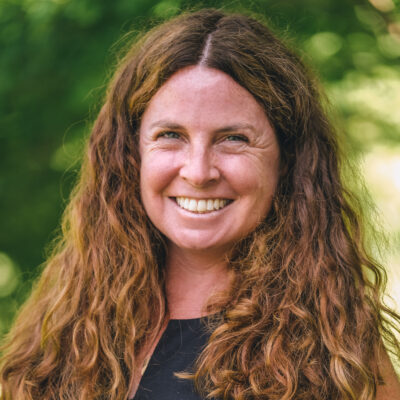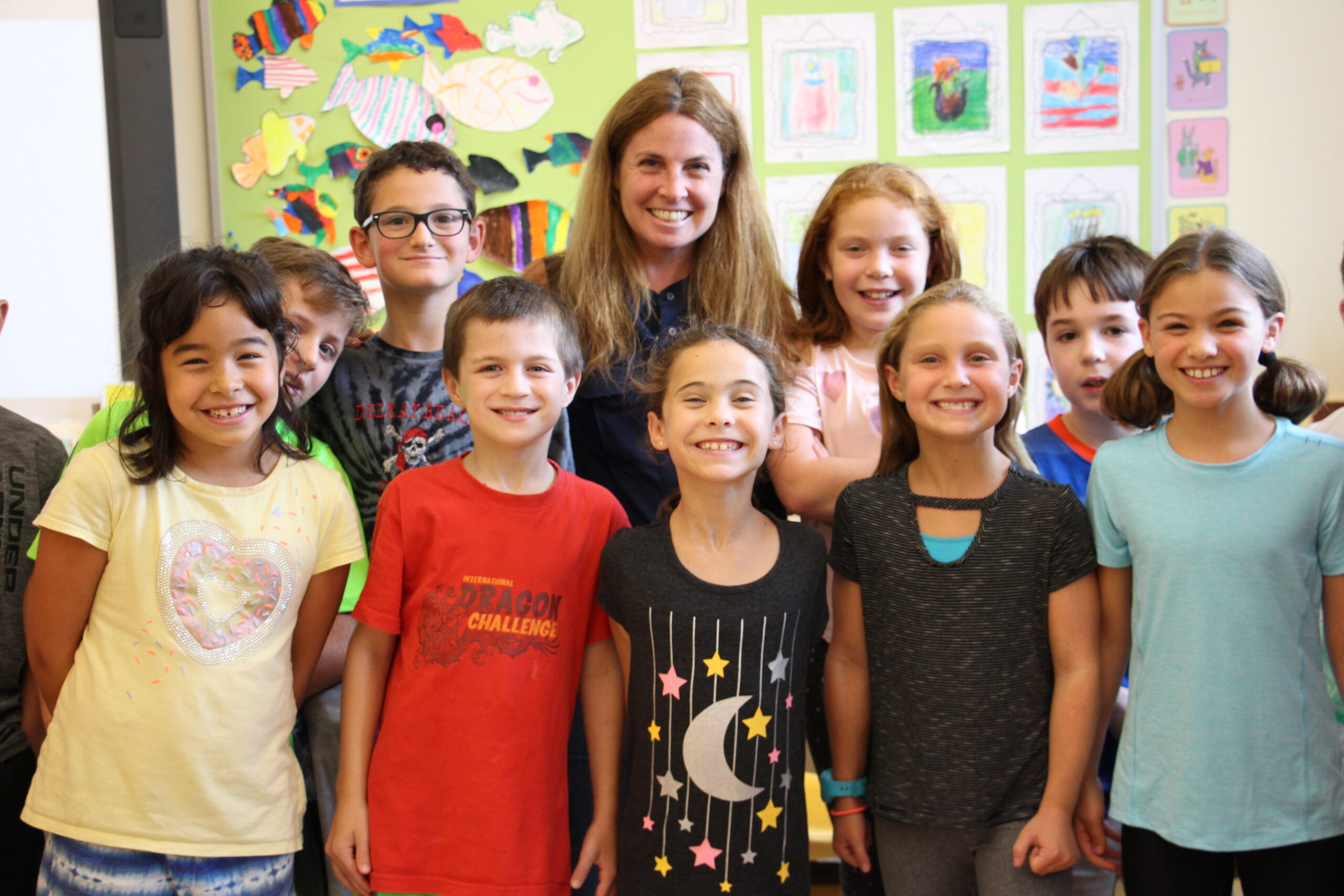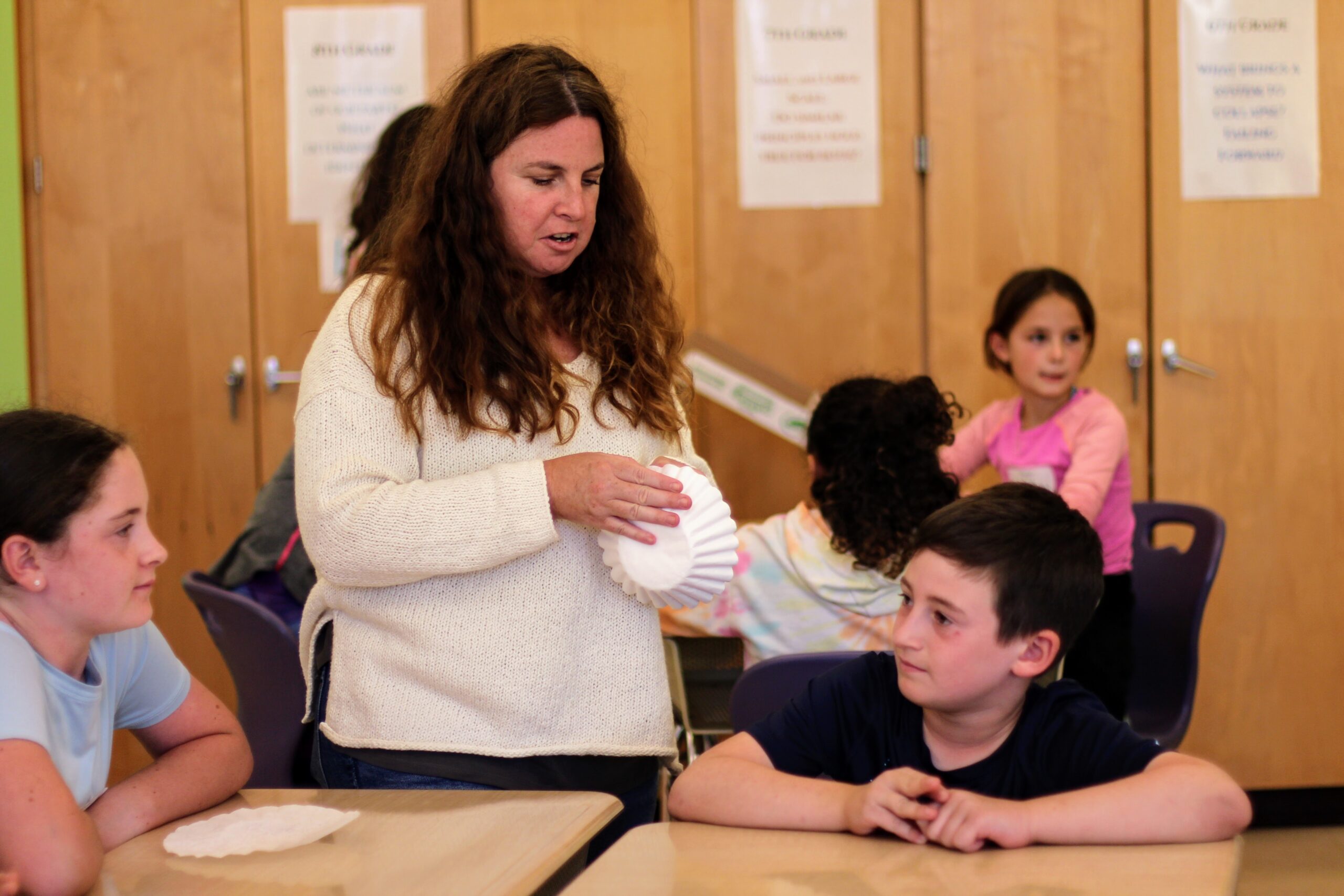 In your 17 years of working here, what are some things that are new at Rashi and what are some things that are the same?
In your 17 years of working here, what are some things that are new at Rashi and what are some things that are the same?
It’s astounding to think about how different the world was when I started to teach at Rashi in 2006. One of the most significant changes has been the introduction and use of technology tools that enhance the learning experience of students. The immediate access they have to content is incredible, and the integration of EdTech tools has transformed curriculum and teaching pedagogy. Students have more agency—even in the youngest grades—and participate in the unfolding of a unit of study through their interests and research. Assessment has become more innovative, there is more integration of skills and concepts across disciplines, classrooms are becoming “self-paced,” mastery-based progression is increasingly embraced, and learning in general is becoming more authentic, relevant, and applicable to “real world” situations. I think that Rashi alumni—particularly those who graduated prior to 2015—would be fascinated to see how these changes have impacted the student experience.
What hasn’t changed is the school’s commitment to the social-emotional wellbeing of students, nor its commitment to social justice and responsible citizenship, nor its emphasis on community and inclusion, nor its determination to ensure that Rashi alumni are prepared not only to thrive in their lives post graduation, but to do so in a way that brings forward the best of our human qualities: compassion, empathy, curiosity, creativity, and generosity of spirit. I’ve been proud to be part of a professional community that values the rigor and excellence of our academic program while staying focused on what really matters, which is the health and happiness of the children we serve.
When you think of Rashi Alumni, what words or thoughts come to mind?
I’m always so proud when alumni come to visit and share their stories. There is such breadth to “life after Rashi,” and it’s always seemed to me that Rashi alumni are driven to live authentically. This is evidenced by the diversity of their academic, professional, and personal endeavors—a vast constellation of pursuits that reflect their unique passions and interests. We hear about what alumni are out there doing in the world with their intellect and talents, and it all makes sense because we knew and loved them…and we remember them and love them still! Hopefully, Rashi played a role by providing a safe learning environment in which they were encouraged to embrace, nurture, and express their core identities. Teachers here have deep reverence for the individuality of each student. We hear remarkable stories of service, of adventure, and of great successes. We hear how alumni continue to support one another and their communities. Of course we celebrate the ways in which they leverage and contribute their gifts in the spirit of tikkun olam, but we also celebrate the simple fact that they are out there doing their unique thing—that thing that only they can do, however grandiose or quiet, that reverberates and resonates and affects us all. We’re so lucky to have the privilege of being part of that!
What are some of your favorite things about being a Grade 5 Teacher at Rashi?
Grade 5 has offered many new opportunities for me to grow and challenge myself after teaching Grade 3 for sixteen years. I am loving the new curriculum, and particularly all of the learning I’ve done with the students about mycelium and mycorrhizal networks. The way they’ve developed this learning into meaningful STEAM Fair projects—exploring all of the ways mycelium can be used to fight food insecurity and contribute to the creation of more sustainable communities—has been incredible. Developmentally, it’s a special time to work with them. Having come from the younger grades, I can see the ways in which everything is beginning to come together in terms of skills and concepts. They are increasingly flexing their autonomy, and they engage with each other and the world with growing sophistication. I also love working with Anne Glanz and appreciate the partnership we have with the Hebrew teachers and all of the specialists. Having committed and talented partners in practice is essential. It takes a village!



